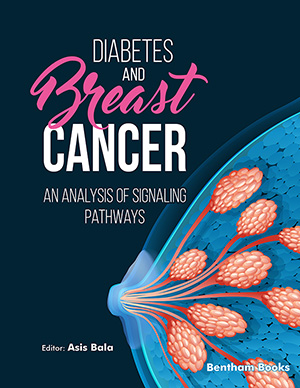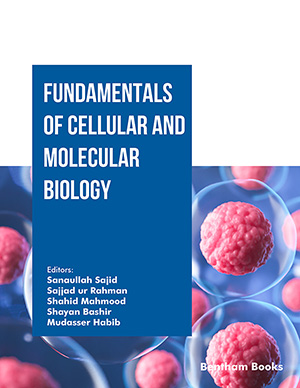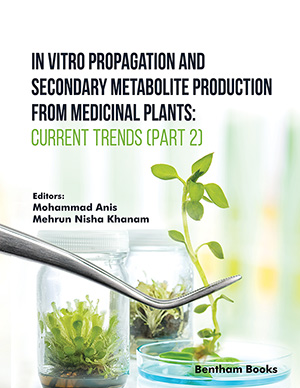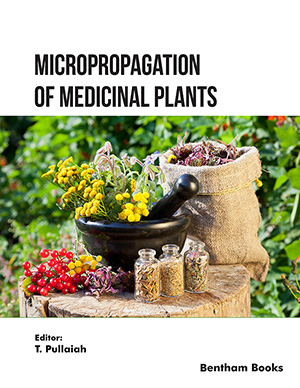Abstract
One of the most prevalent cancers throughout the world is colorectal cancer (CRC). Natriuretic peptides are important hormones that have a crucial role in the physiology of humans and other animals. There are a variety of treatments for colon cancer. However, conventional therapies have many side effects and low efficacy in the treatment of this disease. Atrial Natriuretic Peptide (ANP) is one of the most well-known natriuretic peptides involved in regulating blood pressure and blood volume. Studies have demonstrated that ANP has a therapeutic effect on different cancer types. The anti-tumor effect of ANP is exerted by inhibiting DNA synthesis but not inducing apoptosis. The anti-proliferative role of ANP has been reported in human breast, prostate, colon, pancreatic, lung, and ovarian cancer and in many other tumors. Therefore, we review the recent papers on natriuretic peptides in CRC as a common malignancy in adults to assess the pathways of ANP involved in the progression of CRC and its effects on the prevention or treatment of CRC and other cancer types.
Keywords: Atrial natriuretic peptide, colorectal cancer, biomarker, pancreatic, ovarian cancer.
[http://dx.doi.org/10.1056/NEJMra0804588] [PMID: 20018966]
[http://dx.doi.org/10.3322/caac.20038] [PMID: 19897840]
[PMID: 24639430]
[http://dx.doi.org/10.1146/annurev-med-051513-102539] [PMID: 25341011]
[http://dx.doi.org/10.1016/j.bbcan.2020.188460] [PMID: 33184028]
[http://dx.doi.org/10.1080/14737140.2018.1442217] [PMID: 29458272]
[http://dx.doi.org/10.21873/anticanres.14536] [PMID: 32878821]
[http://dx.doi.org/10.2174/0929867321666140205134616] [PMID: 24524764]
[http://dx.doi.org/10.1016/j.bbadis.2012.02.016] [PMID: 22387884]
[http://dx.doi.org/10.1073/pnas.1417273112] [PMID: 25775533]
[http://dx.doi.org/10.3329/icpj.v1i7.10812]
[http://dx.doi.org/10.1172/JCI25417] [PMID: 15931381]
[http://dx.doi.org/10.1152/ajprenal.00164.2014] [PMID: 25651559]
[http://dx.doi.org/10.3389/fphys.2021.693099]
[PMID: 34237455]
[http://dx.doi.org/10.1158/0008-5472.CAN-07-3086] [PMID: 18172317]
[http://dx.doi.org/10.3390/biom11060794] [PMID: 34070682]
[PMID: 23482745]
[http://dx.doi.org/10.2174/0929867321666140205140152] [PMID: 24524761]
[http://dx.doi.org/10.1097/01.hco.0000221582.71619.84] [PMID: 16601459]
[http://dx.doi.org/10.1093/eurheartj/eht463] [PMID: 24216390]
[http://dx.doi.org/10.1161/CIRCHEARTFAILURE.109.895581] [PMID: 21216831]
[http://dx.doi.org/10.1097/00004872-199404000-00001] [PMID: 8064155]
[http://dx.doi.org/10.1016/j.peptides.2004.08.028] [PMID: 15911064]
[http://dx.doi.org/10.1016/j.jacc.2003.09.051] [PMID: 14998614]
[http://dx.doi.org/10.1016/j.ejheart.2003.12.015] [PMID: 14987573]
[http://dx.doi.org/10.2169/internalmedicine.51.8027] [PMID: 23064562]
[http://dx.doi.org/10.1210/en.2007-0081] [PMID: 17412809]
[http://dx.doi.org/10.1007/s00395-004-0460-0] [PMID: 14963665]
[http://dx.doi.org/10.1097/01.ccx.0000135513.26376.4f] [PMID: 15385748]
[http://dx.doi.org/10.1161/01.HYP.0000258532.07418.fa] [PMID: 17283251]
[http://dx.doi.org/10.3892/mmr.2019.10121] [PMID: 30942405]
[http://dx.doi.org/10.1128/MCB.00004-16] [PMID: 26976639]
[http://dx.doi.org/10.1016/S1535-6108(03)00248-4] [PMID: 14585353]
[http://dx.doi.org/10.1016/j.jamcollsurg.2009.12.008] [PMID: 20421047]
[PMID: 22753708]
[http://dx.doi.org/10.1007/s10456-012-9259-z] [PMID: 22402885]
[http://dx.doi.org/10.1158/0008-5472.CAN-15-1605] [PMID: 26988990]
[http://dx.doi.org/10.1038/sj.bjc.6603176] [PMID: 16773076]
[http://dx.doi.org/10.1210/endo.142.4.8099] [PMID: 11250939]
[http://dx.doi.org/10.1172/JCI59701] [PMID: 22307324]
[PMID: 32832482]
[PMID: 22165670]
[http://dx.doi.org/10.1016/j.ijcard.2008.11.146] [PMID: 19155075]
[http://dx.doi.org/10.1016/j.ctrv.2017.11.002] [PMID: 29169144]
[http://dx.doi.org/10.1186/s13045-017-0471-6] [PMID: 28476164]
[PMID: 30556859]
[http://dx.doi.org/10.1016/S0092-8674(00)00122-7] [PMID: 11057903]
[http://dx.doi.org/10.1016/j.biopha.2018.11.082] [PMID: 30530050]
[http://dx.doi.org/10.1007/s11888-017-0354-9] [PMID: 28413363]
[http://dx.doi.org/10.1002/jcb.25903] [PMID: 28109136]
[http://dx.doi.org/10.1073/pnas.1120068109] [PMID: 22753465]
[http://dx.doi.org/10.2310/JIM.0b013e318292110a] [PMID: 23612148]
[http://dx.doi.org/10.1016/j.cellsig.2013.11.032] [PMID: 24308963]
[http://dx.doi.org/10.1016/j.lungcan.2004.04.037] [PMID: 15541813]
[PMID: 11335879]
[http://dx.doi.org/10.1387/ijdb.103214ec] [PMID: 21858761]
[http://dx.doi.org/10.1038/s41467-017-02610-0] [PMID: 29367702]
[http://dx.doi.org/10.3389/fnmol.2011.00051] [PMID: 22144946]
[http://dx.doi.org/10.1006/bbrc.1999.0227] [PMID: 10049745]
[http://dx.doi.org/10.1038/sj.neo.7900186] [PMID: 11687953]
[http://dx.doi.org/10.1038/bjc.1998.688] [PMID: 9823983]
[http://dx.doi.org/10.1186/1471-2407-9-432] [PMID: 20003271]
[http://dx.doi.org/10.1159/000485455] [PMID: 29179185]
[http://dx.doi.org/10.1016/S0169-328X(03)00025-1] [PMID: 12654515]
[http://dx.doi.org/10.1007/s11010-009-0154-x] [PMID: 19437103]
[http://dx.doi.org/10.1056/NEJMoa032691] [PMID: 15175435]
[http://dx.doi.org/10.1159/000320520] [PMID: 20798560]
[http://dx.doi.org/10.1046/j.1523-1755.1998.00869.x] [PMID: 9573527]
[http://dx.doi.org/10.1016/j.ceb.2007.02.001] [PMID: 17303404]
[http://dx.doi.org/10.1517/14728222.2011.648617] [PMID: 22239438]
[http://dx.doi.org/10.3390/cancers9050052] [PMID: 28513565]
[http://dx.doi.org/10.1002/jat.2829] [PMID: 23112108]
[http://dx.doi.org/10.1038/sj.onc.1210414] [PMID: 17496918]
[http://dx.doi.org/10.2147/OTT.S42446] [PMID: 23926437]
[http://dx.doi.org/10.1074/jbc.271.24.14156] [PMID: 8662898]
[http://dx.doi.org/10.1371/journal.pone.0178607] [PMID: 28570595]
[http://dx.doi.org/10.1136/hrt.2003.018325]
[http://dx.doi.org/10.1136/heartjnl-2020-317735] [PMID: 33219109]
[http://dx.doi.org/10.3390/ijms20081820] [PMID: 31013779]
[http://dx.doi.org/10.1016/j.yjmcc.2004.01.001] [PMID: 15081310]
[http://dx.doi.org/10.1097/01.coc.0000256101.04404.b0] [PMID: 17551307]
[http://dx.doi.org/10.1046/j.1365-2362.2003.01262.x] [PMID: 14636304]
[http://dx.doi.org/10.1111/j.1365-2362.2005.01444.x] [PMID: 15638821]
[http://dx.doi.org/10.1074/jbc.M107341200] [PMID: 11553633]
[http://dx.doi.org/10.1097/01.cmr.0000232296.99160.d7] [PMID: 17119451]
[http://dx.doi.org/10.1530/ERC-13-0054] [PMID: 23533248]
[PMID: 17591353]
[http://dx.doi.org/10.1111/j.1365-2362.2005.01569.x] [PMID: 16269020]
[http://dx.doi.org/10.1002/cam4.642] [PMID: 26816265]
[http://dx.doi.org/10.2174/0125899775237721231024092023] [PMID: 37936462]
[http://dx.doi.org/10.2174/0113894501264450231129042256] [PMID: 38053355]





























